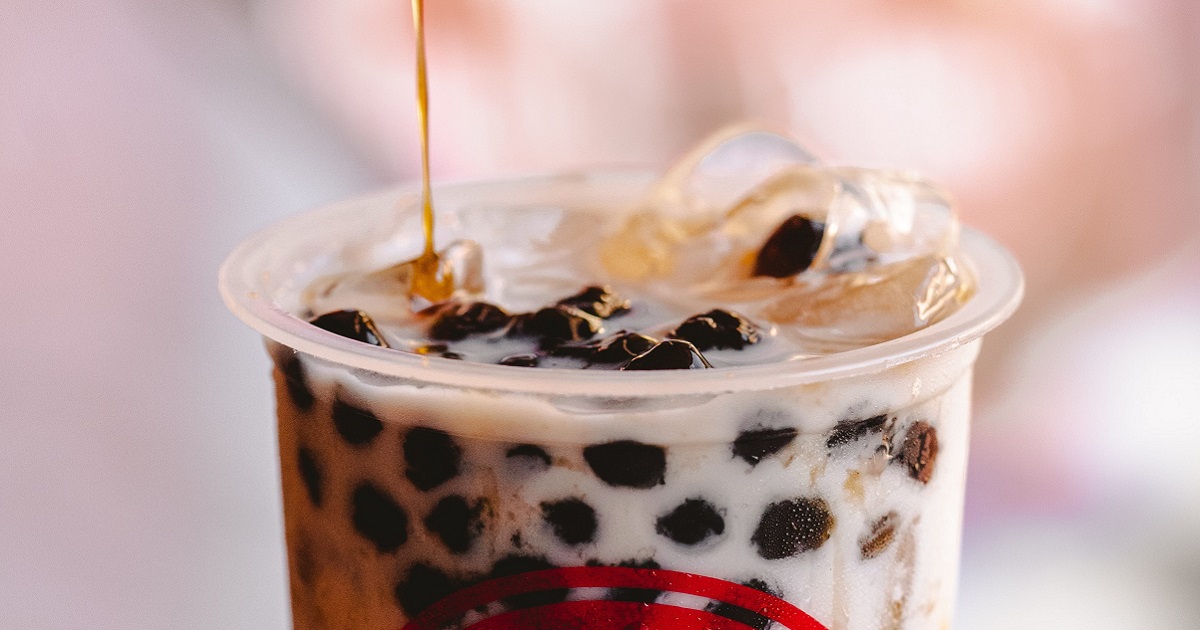Livening Up the Tea
There are numerous bubble tea outlets dotting cities across the region today. One such example is Tealive, founded in Malaysia by a Malaysian. Here, its CEO speaks on relying on tech to run a business during a pandemic and readying it for post-pandemic.
As one enters the WIEF Foundation office in the heart of Kuala Lumpur, turn right and not 20 paces from the entrance, sits an ardent fan of bubble tea. Specifically, Tealive. No less than twice a week, two tumblers of the chilled, appetising and lively milky tea dotted with boba, or chewy tapioca balls, sit on her desk with straws erect at the ready to facilitate sips. That colleague of ours, is just one of many thousands in the Southeast Asian region who consume the beverage from various outlets on a weekly, if not daily, basis.
Said to begin in Taiwan over four decades ago, one of the reasons bubble tea’s popularity gained traction in a big way is due to the advent of social media. The highly photogenic Instagram-friendly drink seem to have no bad angles and, apparently, no bad flavours either. In Malaysia, while there are numerous bubble tea shops, Tealive seems to dominate the market with currently over 600 outlets nationwide offering over 70 drinks on their menu. To date, Loob Holding Sdn Bhd, the company under which Tealive sits plus various other F&B brands, is looking to hire up to 1,500 people to add to their 2,000-strong workforce within this year.
The person behind it all is 30-something year old Bryan Loo who opened it in 2017. Today, it has become an award-winning international brand and there are outlets operating in Malaysia and Vietnam, with plans to expand to Australia, China, the United Kingdom, Japan, Cambodia, the Philippines and Thailand. In mid-2019, The Edge Markets reported that Loob Holding is planning an initial public offering (IPO) in Malaysia. Bryan Loo said the group is targeting to list in the first half of 2020 but that plan was put on hold to perhaps mid of 2021.

Bryan, prior to speaking at WBN’s #iEmPOWER virtual session on Digitalisation Trend Creating Opportunities in F&B on 4 May 2021, answers some questions on running a business during a pandemic and readying it for post-pandemic.
Q: How has your business been during this pandemic?
Bryan: COVID-19 has obviously impacted our business at the beginning. However, we continue our growth in store expansion and reacted very smoothly to the pandemic. While our revenue per store was impacted, we’ve since recovered to 90 per cent pre-pandemic level. Overall, we’re still growing in FY21, both top line and earnings before interest, taxes, depreciation and amortisation (EBITDA). Our shop lot format in suburban and rural area, as well as petrol stations, are performing just as well as during pre-covid period.
Q: Which area of the business was hit the worst?
Bryan: Most impacted would be our outlets in shopping malls, airport and those on university premises which have taken a bigger hit in footfall from the pandemic. Surprisingly, our businesses across the system have been quite resilient throughout the pandemic period.
Q: What changes have you made to your business to ensure it will thrive during and after the pandemic?
Bryan: We’ve done many first attempts in an unprecedented time. We pivoted our primary brick and mortar business model from offering crafted bubble tea to consumers, to various new initiatives including the launch of Tealive’s very own e-commerce bubble tea online store, Tealive with Wall’s ice cream collaboration. Also, first of its kind Tealive with Mamee boba instant noodles, Tealive’s DIY bubble tea kit for home-based consumers, launch of multiple virtual brands that integrated directly into Tealive store network such as Bask Bear Coffee, Culture by Tealive and Soul Brew.
Even though retail remains the key component in our sales, we’re investing heavily in resources and time towards digitalisation. This is because we believe the online market will continue to grow and double its pace to become the long term new normal. As part of our commitment to adapt to the new norm in terms of safety of our stakeholders, we’ve implemented contactless ordering, drive-in and order ahead at nationwide stores. This online, cashless process enable social distancing and allows customers to grab their favourite drinks anytime, anywhere, with peace of mind.
Q: What are the three challenges facing the F&B industry right now? And can tech help solve these challenges?
Bryan: One, inconsistent footfall traffic compared to pre-pandemic days. We need to make sure our businesses are well equipped to offer our products across all channels from takeaway, delivery to seamless contactless ordering service, to stay relevant with customers’ ever-changing buying habits. Two, shying away from adopting delivery services due to high commission and compressed margins. Adopting virtual brand on various delivery platforms is the ultimate answer to counter the challenges. Finally, high turnover of staff in F&B industry. At Tealive, we invented the KDS cloud-based system which helps to shorten the staff training duration hence able to cope with rapid store expansion.
Q: How has tech impacted the way you run a business during pandemic?
Bryan: We had implemented contactless ordering capabilities across our system as part of digitalisation effort to reach out to customers in a seamless way. Customers can now order their favourite drinks using QR scan-to-order contactless ordering to minimise contact with our Tearistas and also reduce queuing time. On top of that, for customers who drive, they’re able to access our drive-in function and enjoy our extended efforts where Tearista will deliver drinks to customers’ cars without them having to walk into the stores. Order ahead is also our latest function for customers who make earlier purchase and to pick up their drinks anytime anywhere at their convenience. This helps avoid queuing time and shorten their purchase time at the stores.
Last but not least, our latest Tealive app-in-app platform integrated with Malaysia’s largest e-wallet player Touch ‘n Go (TNG) has been one of the most successful initiatives we’ve launched during the pandemic so far. We were the first merchants invited to set up our own app-in-app feature in TNG e-wallet apps. It was launched in January 2021 and achieved remarkable results during the pandemic period. As of today, we achieved 165,000 transactions through the app.
Q: What opportunities has the tech you use created for your business during the pandemic?
Bryan: During the early days of the pandemic, as we were battling against uncertainties, we managed to leverage on our internal business intelligence tools to quickly develop detailed modelling in regards to our daily profit and loss. Thus, nailing on our manpower and supply chain movement while keeping a close watch on our cash flow position. Looking back at our previous efforts in digitalising our internal processes, we’re in a better position to harness the results in real time basis and tackle the challenges as we go along.
Q: What will the F&B trend be in the coming five years?
Bryan: Scaling up of virtual models and footprints focusing on delivery segment would be essential for business sustainability. Five years down the road, F&B brands with a vast network of store footprints would double their virtual footprints as well as offerings to stay relevant and cope with the rise of delivery demands.
Q: What is your three advice to entrepreneurs to survive the pandemic and succeed post-pandemic?
Bryan: First, think big, start small, scale fast. Second, learn to take comfort of uncertainties as we remain highly flexible and alert to changes from time to time. Finally, always aim on small wins and collective small wins will definitely lead us to our ultimate big wins. Tealive DIY bubble tea kit is our first small win during the early pandemic and the rest became history.
Join Bryan at his session during WBN’s #iEmPOWER Digitalisation Trend Creating Opportunities in F&B on 4 May 2021 at 11am (UTC+8). Register today.
Related article: The Tech on F&B.
Main photo by Gita Krishnamurti on Unsplash.
